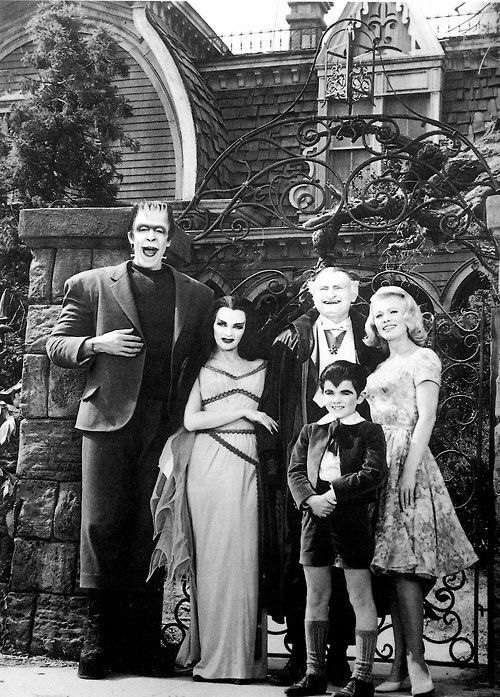The term “dysfunctional family” has been thrown around alot, joked about, but not always taken seriously or understood. At it’s base, it is a family in which there is invalidation, neglect, and often some form of abuse. The children can be negated, put down, ignored and not raised to their full potential. There is often one child who is scapgoated, and then there can be a favored, golden child. I often see that in dysfunctional families, there can be one child that has grown up and seems “normal.” They have risen above the pain and chaos of their family. I call that person the “Marilyn”, from the 60’s show the Munsters. (For those of you who don’t know that show, it is a humorous take on a family of “benign monsters”). Marilyn is the “normal” one, whom the family sees as “distressingly unattractive and plain”. She (he) is the odd one in the circle of strange ones. The Marilyn still has his/her scars to work through.
According to “The Institute of Counseling” (see link below #1)
“A dysfunctional family is one that has at its core destructive and harmful parenting and a lack of concern for the child. The harmful effects on the child may go completely unacknowledged or be minimized. Often, little or nothing is done to rectify the situation or to alleviate its adverse effects upon the child. If the distress caused to the child is severe and long-lasting, he/she may develop a psychiatric condition such as post-traumatic stress disorder (PTSD) which, if not properly treated, may seriously and adversely affect the rest of his/her life.
A dysfunctional family is one whose interrelationships serve to detract from, rather than promote, the emotional and physical health and well-being of its members.
Although this term is used casually in popular culture, health care professionals define dysfunctional family as one where the relationships among family members are not conducive to emotional and physical health. Parents and siblings can have a lack of empathy, unrealistic expectations, inequitable treatment, secrets, control, lack of privacy and conflict between parents (or else collusion to perpetuate the negative cycle). Traits include: sexual, mental, emotional or physical abuse, alcohol and drug addictions, delinquency and behavioral problems, eating disorders, intense criticism and extreme aggression are some conditions commonly associated with dysfunctional family relationships.”
My counseling practice is comprised of many “Marilyns”-those who have been able to see and acknowledge their family dysfunction and seek to find healing and wholeness. Many of the scars they carry are difficult to move beyond, but their will to overcome is strong. As an encouragment, I will say-it IS possible to overcome and not repeat these patterns of the past.
To all the Marilyns out there-I cheer you on!
Resources:
#1-https://instituteofcounseling.org/the-dysfunctional-family/

